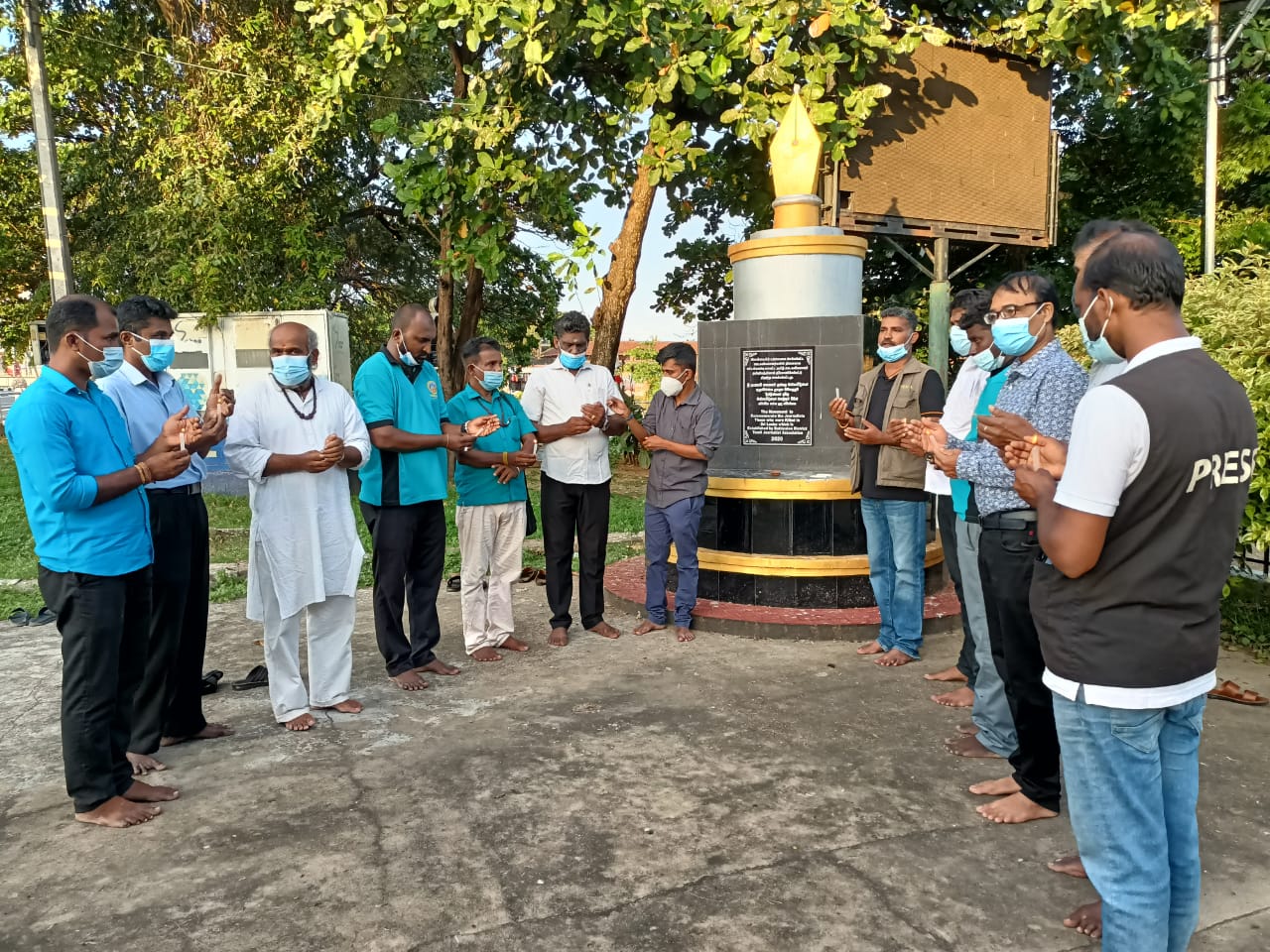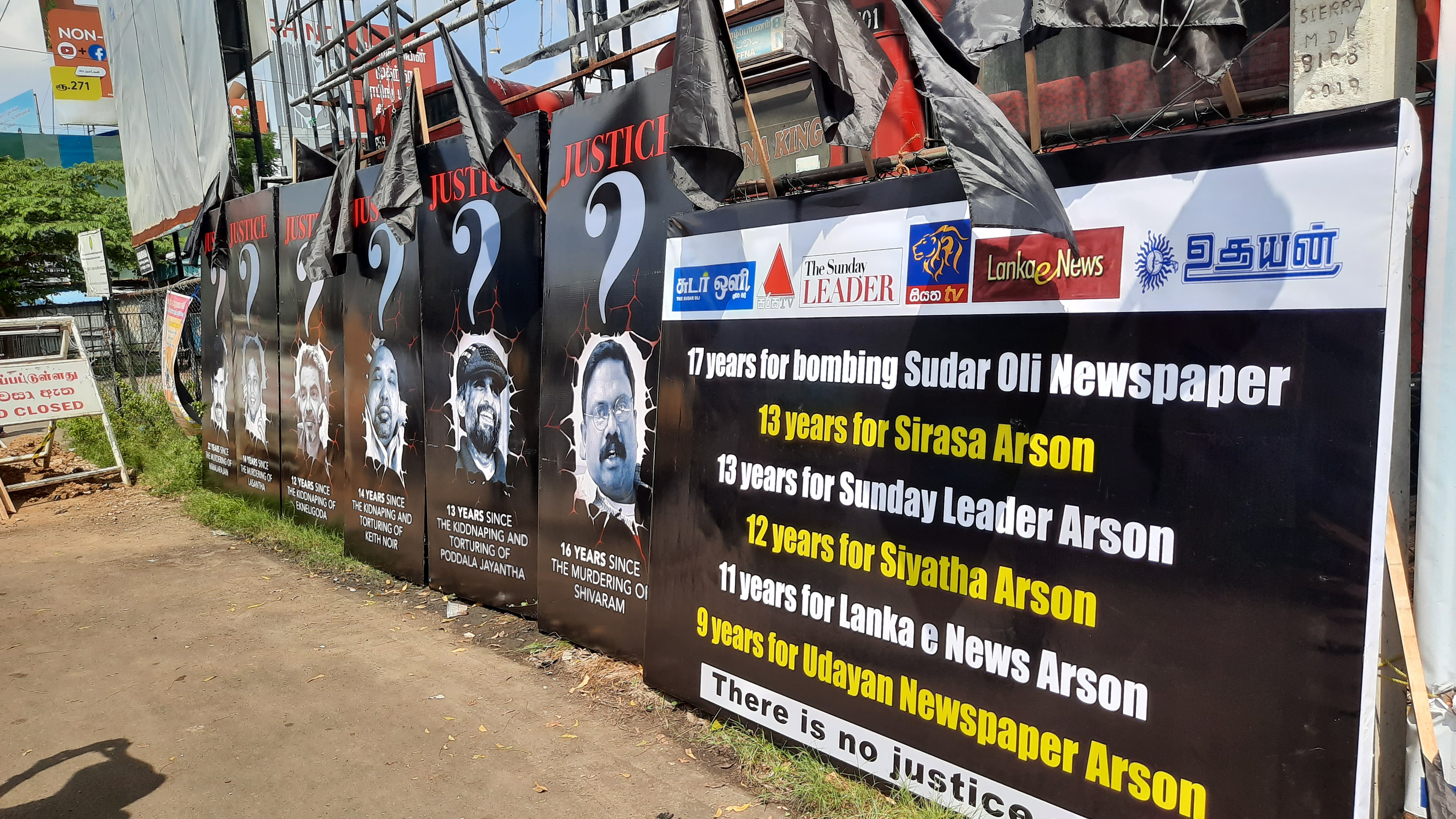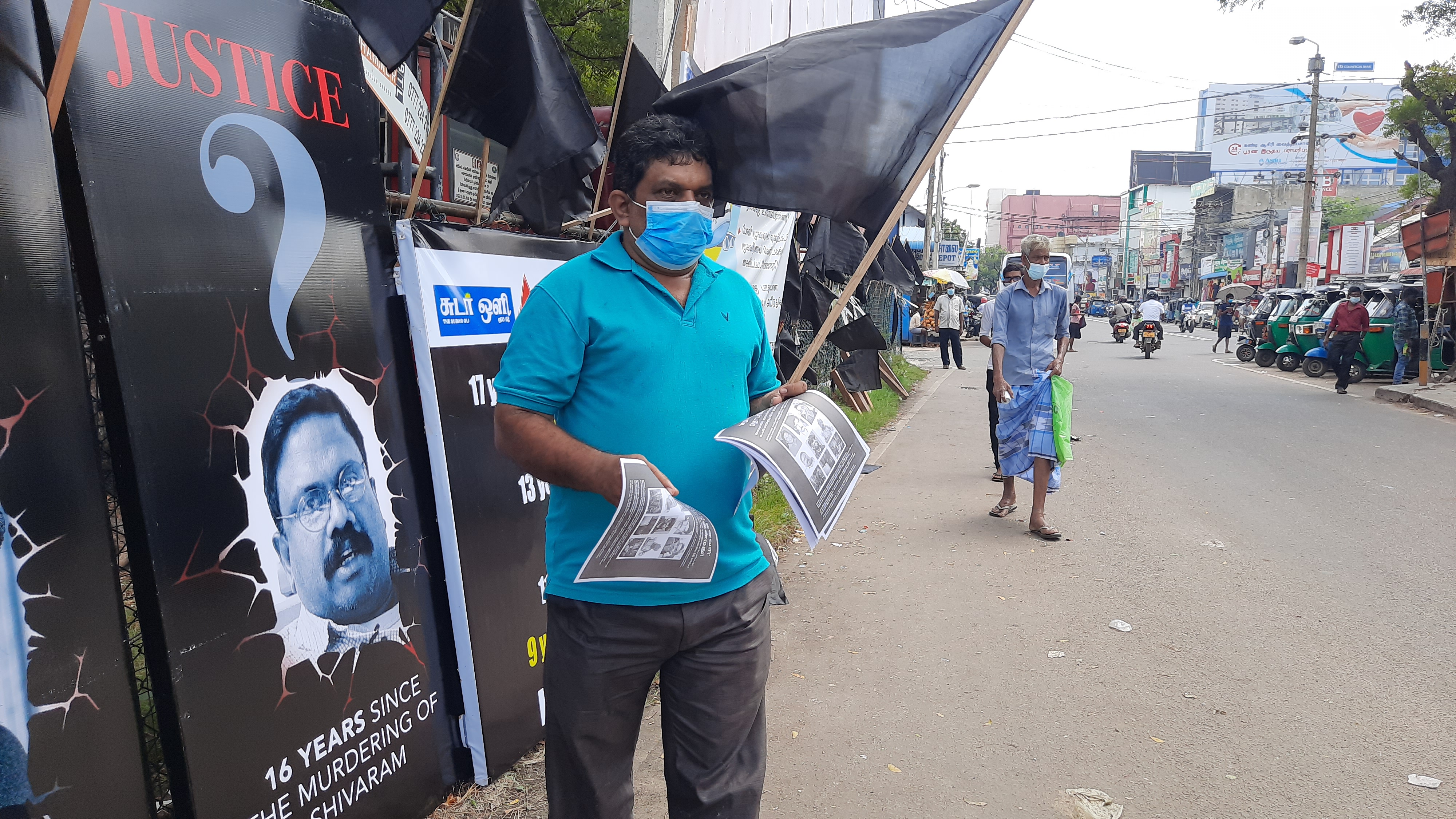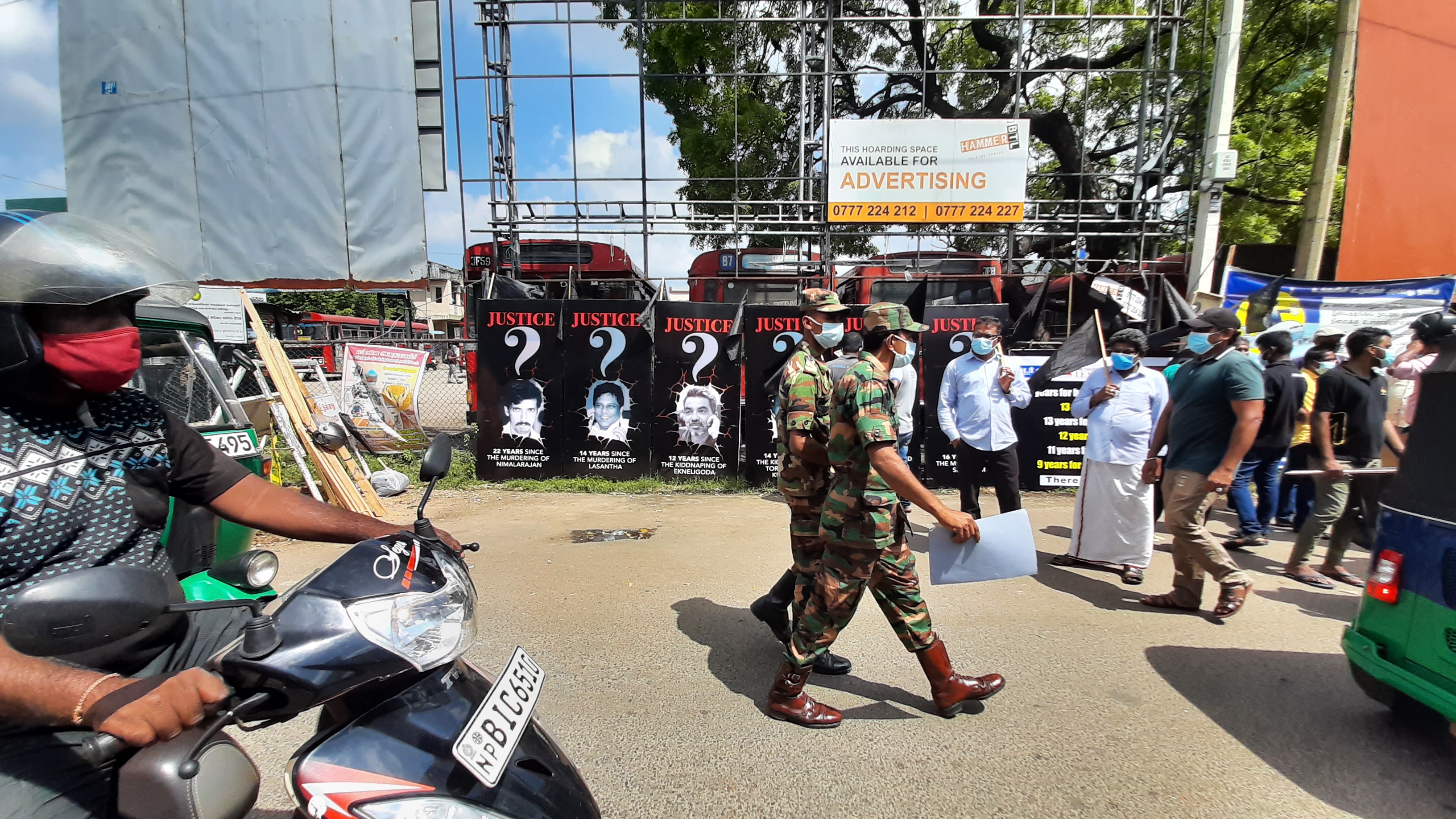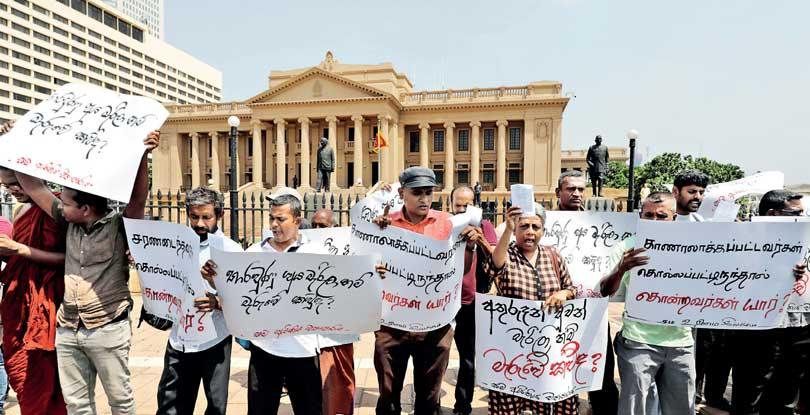Binary Nonsense: A Response To ‘This Is A Crisis Of Socialism, Not Capitalism’

By Lionel Bopage with Michael Colin Cooke –JANUARY 30, 2022It is obvious that Sri Lanka is facing a severe economic crisis. Many people also talk about the way out of it. To find a way out, at first, we should understand the crisis. That is what crisis? And ‘what is the cause of the crisis.
[The Left] …… seek answers not to the real question, but to a question they have imagined. Then they suggest what they think as a solution. But they do not succeed just because they construct reality. What happens is that such movements, with their own analysis and their own politics resolve around their own orbit indefinitely. (C.J. Amaratunge.)[i]
The Big Picture
It is in this pugnacious ideological vein that Mr Amartunge sets up his straw demons – the practitioners of socialism and the adherents of John Maynard Keynes. His article is permeated by his ideological imagining of economic nirvana, not dissimilar to the straw demons he has constructed.
Firstly, his instrumentalist definition of neoliberalism defies reality. Yes, neoliberalism requires governments to cut regulations, reduce wages, decimate trade unions and allow the free movement of capital. What he fails to illuminate is the circumstances and who introduced it into their respective countries. Capitalism has always been volatile and prone to booms and busts, which the Keynesian model was supposed to remedy. But the imperial ambitions of the United States and its military hubris in Vietnam forced it to abandon the gold standard; couple this with the OPEC increasing the price of crude oil (which was essential to keeping any economic system humming) and you have an economic crisis. At the same time many large, small and medium businesses found their profits were cut whilst their wages bill was not being correspondingly reduced. They were also coveting the economic assets of the state. It was at that point that the Chicago monetarist school came to the fore. The economic crises gave them an opportunity to spruik their economic agenda. Who were susceptible to their siren call?
The Chilean dictator Pinochet, after the 1973 coup, was the first to follow their model of a deregulated economic and labor market, followed by J. R. Jayewardene in Sri Lanka, Britain and the United States, and many other countries. With the self-immolation of the Soviet Union, its satellites in Eastern Europe also followed the model.[ii] What they had in common was an authoritarian and resentful nationalism. The state was central to their own political and economic aims and those of their allies. Britain and the United States, in a frenzy of nationalism, defeated smaller states like Argentina and Granada, a boon politically for the party in power and for the suppliers and manufacturers who armed, equipped and fed the troops. This outsourcing of war reached its nadir during the Iraqi war, where governance, military duties and construction were carried out by large transnationals that won billions in contracts.
In the meantime, those governments were annihilating unions (the Miners’ Union in the UK and air traffic controllers in the US). Public assets were privatized and national assets were sold cheaply. Controls on the activities of companies were diluted. This has resulted in a massive shift in income from the individual worker and the state to the new billionaire class – something magnified by the pandemic.
In the world imagined by Mr Amartunge, the market would function perfectly with suppliers and producers having equal knowledge and power, and with governments staying out of the fray. The reality is much more prosaic. The market is a utility dominated by the big companies, whose tendency is to monopoly. Some, like Apple and Amazon, have become behemoths whose annual income is larger than many countries’ GDP. This power allows them unfettered access to the levers of political power, making them even richer and more unaccountable. Neo-liberalism in practice demands a state that reduces the company tax rate, reduces regulation, reduces wages, outsources and weakens unions.
Post Independence 1948 – 1953
Neo-liberalism astutely uses nationalism, religious fundamentalism to divert attention away from a society’s social and economic fissures. Lanka is a perfect case in point. When we were granted independence by the British we had social indices on health, literacy and food production second in Asia only Japan surpassed us. Our debt at the time of independence was a paltry 0.3 per cent of GDP.[iii] But this was illusory. This capitalist (not socialist) economy was based on the sale of three agricultural commodities: tea, coconut and its by-products, and rubber. The long-term prices of these commodities declined over the years. Governments (the SLFP or its more conservative cousin the UNP) borrowed heavily from the mid 1950s to keep the economy going, while safeguarding the interests and privileges of ruling elites and to prop up the state’s welfare provisions.Their futile attempts to broaden the economic base came to naught. Crippling the country further was the inability of the country’s elite, both political and economic (sometimes it was hard to separate them), to curb their economic profligacy. Greed, corruption and economic incompetence fused into competing mono-nationalisms, which rented the country’s social fabric. The first indication of weakness in the economic system was the drastic drop in the price of Lanka’s commodities following the Korean war. The immediate response of the treasurer of the day J.R. Jayewardene was to economically punish the people who could ill afford to have their welfare provisions cut and to allow the perpetrators of the debacle a free pass. A Hartal ensued, and the government was forced to rescind its proto-neoliberal prescription.
A nationalist government followed which forced the British forces to leave the Island, nationalized the bus companies and wrested control of education from the Catholic church. But economically we remained the same – a plantation economy with the usual woes. Instead of creating an economy that could employ a growing population, ethnic scapegoats were found.
When a nominally and progressive social democratic government was elected in 1970, it faced an insurrection of disaffected and unemployed Sinhalese youth, mostly rural, who were supposed to be the beneficiaries of the new Lanka. The low price of tea combined with the oil crisis destroyed the economy, and the blatant nepotism of the ruling family (family Bandyism) ensured that any reforms would be nullified. To appease foreign donors and international capital, the minister in charge of the purse strings, the ‘leftist’ Dr N.M. Perera succumbed to neoliberal theology by cutting the country’s welfare provisions and thus leaving the gate open for the following government to abolish it. This economic collapse was in contrast to the social democratic states of Scandinavia and Germany. Imperfect as they were, they were better able to withstand the economic battering.
Lanka: 1977 – 2007
The rival party, the UNP (consisting famously of uncles and nephews), won in a landslide (51 per cent of the popular vote) and ushered in a text-book version of neoliberalism. His Excellency J.R. Jayewardene changed the constitution, giving him (the executive President) vast power, eliding accountability and weakening Parliament. He destroyed the trade union movement and gradually dismantled the welfare state. He set up free economic zones, deregulated the economy, dismantled government enterprises, changed the tax regime and openly courted western finance and investment. All this was done without consent or any coherent explanation. Social fissures became open sores. There was a major riot, amounting to a pogrom against the Tamils, in 1983; the civil war heated up; there was Indian intervention and the deadly second insurrection by the JVP in 86-89 that resulted in around 40,000 to 60,000 extra-judicial deaths. It was in the middle of this turbulent period that Premadasa, before his untimely death, went on a housing spree (mentioned by Mr Amartunge), done not to create a socialist or social democratic system but for political survival. The housing market currently is in the hands of private capital, and unaffordable for most.
A new President was elected from the rival Bandaranaike party on a radical economic program, promising abolition of the executive presidency. Nothing happened. We got more of the same neoliberalism. A perfect example is the disastrous 2005 tsunami, which killed 35,000 people and destroyed thousands of properties and livelihoods. The people responded as human beings and for a while forgot their differences and helped their fellow countrymen. Our country’s elite saw a business opportunity. The tsunami destroyed many of the huts, boats and nets of the fishing community. They were forced from their land, as it was coveted by the elite, who wanted to build luxury hotels, resorts and restaurants for the tourist trade. The fishing community protested but to no avail and received little or no compensation. What is socialist about this?
Lanka 2007 – Present day
The economic and political structural problems remain the same. The clan currently in power engorge themselves on the state. We have not diversified the economy so that we can produce the goods we buy, thus reducing our indebtedness. Instead of the plantation economy we now have remittances from abroad, with tourism and the garment sector also being high income earners. But they do not bring in enough revenue to service our debt, which has kept ballooning, or to keep government services to a civilized level. Contrary to Mr Amartunge’s contention, like an good neoliberal government, they keep spending low on where it matters the most: on health, the government spends a paltry 3.76 per cent. Education takes 17.6 per cent of the budget, and those who can afford it bypass the public system for the increasingly expensive private schools. A lucky few get their education overseas. This is because the intuitions and countries that finance and monitor the country’s debt do not consider (unlike most of the electorate) education and health productive investment as it has no short term return on investment.
Meanwhile, thirteen years after the LTTE was annihilated in 2009, we still have an untenably large and expensive number of people under arms, paid for by the public purse. The pandemic is proving costly. The demand of our garments decreases and people are fearful of travelling, decimating the tourist trade. The exorbitant price of airfares has put a damper on travel for work purposes and the host countries have closed their borders to our workers. A perfect storm is brewing with nary a solution being offered by the current government.
Lanka has always been captive to whims of international capital. Yes, there were government financed enterprises, with the aim of fostering a manufacturing base and import substitution to help alleviate the country’s dependence on foreign capital and goods. They were run on capitalist lines and within the framework of the international market. They came undone, not because they were government enterprises but because of the business culture that the elite of the country fostered – the state purse and state positions being there for their personal gain.
The big mistake made by people including the freemarket fantasists like Mr Amaratunge is their binary approach to neoliberalism. Like most economic practices it works with and within the ideological, political and national hegemony of the state it entrenches itself in. The size of the state is not the key consideration but who does it benefit. Neo-liberalism does however share some defining characteristics: low taxes, tax evasion, regressive taxes, low spending on welfare measures like health, and education; deregulation; the growth of monopolies; and a state that follows the dictates of foreign and indigenous capital to the detriment of its citizenry and the environment. It is these characteristics that the Lankan political and economic elite share with other authoritarian neoliberal states.
.jpeg)
